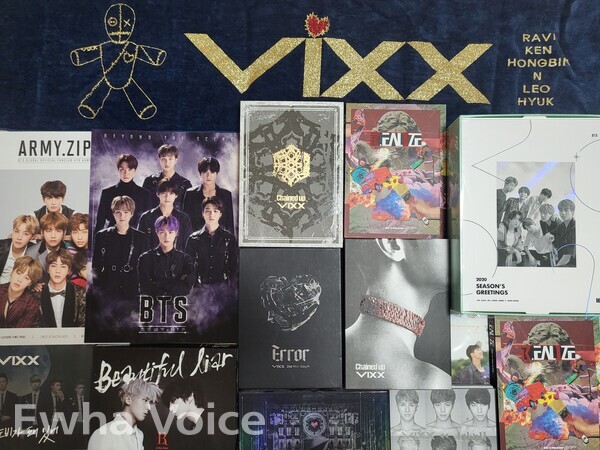
An article written by Barrington Area Library revealed that among the roughly 100 idol groups that debut each year, less than 5 percent survive. The estimated age of K-pop idols at the time of their debut ranges from 16 to 21, but it is not unusual to see idols who are even younger than 16. Entertainment companies seek younger trainees as can be seen from BIGHIT MUSIC’s 2023 global audition, where they accepted applicants born after 2005.
Concerns follow as the industry wants younger people. The South Korean education system requires every citizen to receive compulsory elementary and secondary education for nine years. This could mean K-pop idols who debut during their childhood or adolescence will miss their mandatory education. On top of that, idols typically go through a trainee period, which could take years, where they practice day and night before making debuts. The period may become another disturbance for trainees to get basic education. Unfortunately, not every trainee ends up becoming a successful K-pop idol, and the time they dedicated cannot be returned. Both trainees and idols strive for their job due to the competitiveness of the industry, sometimes too hard to even maintain basic health. Then, what kind of protections are there for the underage trainees as well as active idols, and what do they need further for their rightful labor?
Yanika Yimvilai, who is from Thailand and a sophomore from the Division of International Studies, grew up listening to K-pop music since she was in elementary school. Although she recognizes that early debuts are advantageous to both companies and bands as the groups’ lifespan can be longer, it is important not to overlook the likelihood of underage idols or trainees being manipulated by companies.
“The problematic point is that they get exposed to the public way too early when they cannot give consent like adults do,” Yimvilai said. “So, it is natural that they do not know how to cope with offensive comments such as body-shaming.”
Yimvilai thinks the underlying issue is the fact that companies objectify idols as the source of income, instead of seeing them as human.
“It is indisputable that underage trainees and idols should be protected,” she said. “However, at the same time, they did sign a contract in agreement to commit to the company whether it means giving up their childhood or adolescence. Their desperation for stardom, however, makes the situation tricky and insurmountable.”
Pakjira Pajaitham, a sophomore from Thailand majoring in international studies, has been a fan of K-pop culture since 2014. She also expressed her concern for children and adolescents as they spend the majority of their time in recording studios and practice rooms, while their peers are studying at school and bonding with each other.
“When trainees fail to make a debut or once idols reach the end of their most popular era, they usually have a hard time figuring out what to do because they have only ever wanted to become an idol throughout their whole lives,” Pajaitham said.
Pajaitham wishes the South Korean government could protect the underaged in the K-pop industry to prevent them from being exploited, such as legislating more laws or building a ministry dedicated to children and adolescents within the industry.
Culture critic Kim Hern Sik answered some questions related to the issue. Kim does not agree with idols debuting at younger age, arguing that it is merely a perspective of media with the intention to draw the audience’s attention. He further explained that agencies in other countries sign a contract with celebrities who are already popular, while South Korean entertainment companies invest in trainees from a young age who are not known to the public.
“Even if the contract does not seem reasonable, those who wish to become idols have no choice but to accept it,” he said. “The Ministry of Culture, Sports and Tourism encourages abiding by the related standard policy; however, it is not compulsory, so except for major companies, the system is not properly set and very easy to lead to enslavement.”
For example, Kim mentioned the recent controversy of FIFTY FIFTY, a K-pop girl group. Members of the group have been involved in a legal dispute with their label ATTRAKT for attempting to break their exclusive contract in cooperation with Warner Music Korea, who had announced a global distribution deal with the group in April this year. The aftermath of a filed lawsuit was undoubtedly significant since not only the group’s reputation is tarnished but also their appearance in KCON LA was canceled, leading them to miss out on all the potential opportunities as a successful group. Kim personally thinks the group is a genuine victim of the South Korean entertainment industry while all the news coverage and audience are blaming the members for attempting to betray their label.
“The system itself is not built fairly for children and adolescents,” he said. “It is no exaggeration to say that entertainment companies have all the rights, making it easier for them to exploit idols. The system forces them to unconditionally comply with the contract because signing the contract is the only way for them to become idols. If idols point out the unfairness of the agreement after they become popular, everyone will accuse them of being calculative which is despicable. The more K-pop culture becomes famous, the harder it gets for the system to protect trainees and idols.”
Kim added that some companies even get a loan while guaranteeing the success of the groups they are fostering. When idols cannot bring in enough profit, they are the ones who should be paying the money back as that is what the contract says.
Currently, there are no specific policies set for the underaged in the K-pop industry. Kim hopes that every person involved in the industry respects idols and their music so that both artists and fans who love K-pop would bond together in a healthier way.

